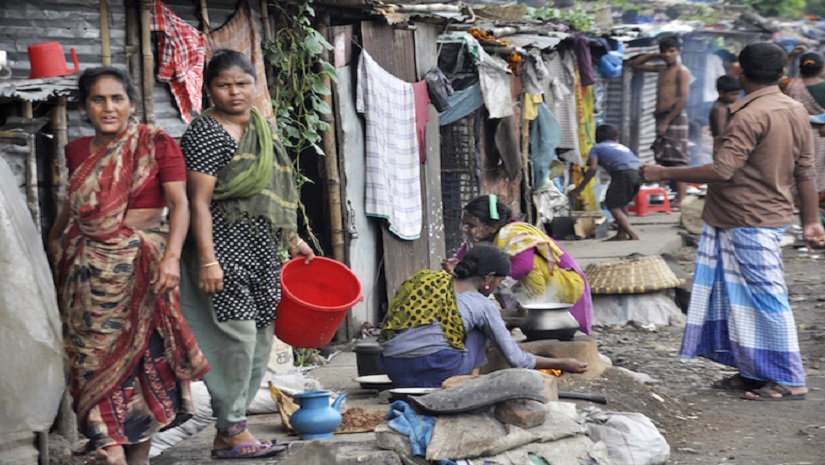14 percent of low income respondents have no food at home due to countrywide shutdown to curb spread of coronavirus
- Nayadiganta English Desk 11 April 2020

Bangladeshi low income people have experienced tough times due to the countrywide shutdown to contain the spread of novel coronavirus, according to a study.
“Low income people of the country are suffering great losses in their earnings since the enforcement of social distancing measures and lockdowns to fight the novel coronavirus. Extreme poverty has risen 60 percentage points than before, while 14 percent people do not have any food at home,” a survey conducted by Bangladesh-based BRAC, world’s one of the largest NGOs, revealed late Friday.
Bangladesh has been marking countrywide shutdown since March 26. It was extended Friday for third time until April 25.
The virus killed 30 people in the country and infected 482 so far, according to latest governmental data by the Institute of Epidemiology, Disease Control and Research on Saturday. Meanwhile, 36 recovered from the disease.
Government has deployed army across the country to assist the local administrations to maintain social distancing.
According to the official Gazette issued by the Public Administration Ministry, “no one will be allowed to leave home” with some exceptions for essential services such as electricity, water, gas, fire brigade, telephone and internet.
The decision came after six more people died from the coronavirus in the last 24 hours, marking the country’s highest daily rise since the outbreak on March 8.
The BRAC survey was conducted among 2,675 people with low-income background in all 64 districts of Bangladesh and carried out from March 31 to April 5.
However, it said: “Due to the public holiday and lockdowns to enforce social distancing measures 72 percent reported job-loss or reduced work opportunities and 8 percent, who are still employed, have not received their payment.”
“A total of 51 percent of rickshaw pullers, 58 percent factory workers, 66 percent hotel/restaurant workers and 62 percent day laborers in non-agricultural sectors reported their income reduced to zero in the current month,” it added.
Referring to the prevailing situation, the study recommended immediate assistance.
“Food assistance must immediately reach the millions of households across the country suffering from acute food shortage. Otherwise, they will be compelled to leave home to earn their living in violation of the social distancing measures, increasing the risk of spreading coronavirus.”
Since appearing in Wuhan, China, last December, the novel coronavirus has spread to at least 185 countries and regions.
Data compiled by the U.S.-based Johns Hopkins University shows worldwide infections surpassed 1.7 million, with the death toll around 103,000, while more than 377,400 people have recovered so far. [Source: Anadolu Agency]









